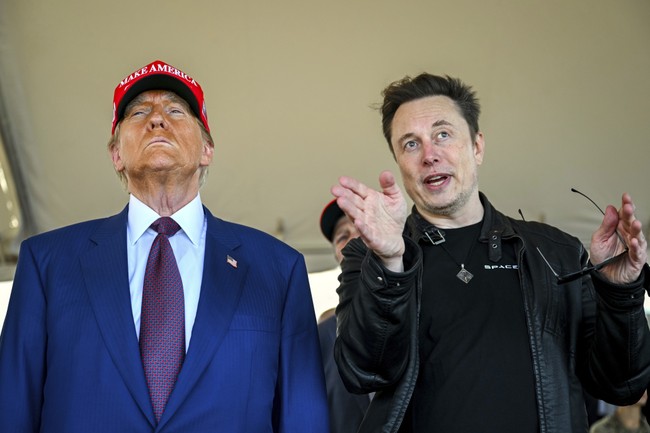Jens Stoltenberg's Unexpected Return in Norwegian Politics
Jens Stoltenberg, previously NATO Secretary-General, makes a surprising comeback in Norway's government as the finance minister after the split of the country's ruling coalition.
Published February 05, 2025 - 00:02am

Image recovered from washingtontimes.com
Jens Stoltenberg, who led NATO as its Secretary-General for a decade, has made an unexpected return to Norwegian politics, stepping into the crucial role of Finance Minister. His appointment follows a significant political development in Norway, where the ruling coalition experienced a fracture. The junior partner, the Center Party, exited the coalition amid disputes over aligning Norway's energy policies with those of the European Union. This departure left Jonas Gahr Støre, the Prime Minister and leader of Stoltenberg's center-left Labour Party, in need of restructuring his Cabinet.
The Center Party's exit has reshaped the current political landscape, creating a challenging situation as Norway approaches a parliamentary election in September. The Labour Party has been trailing in opinion polls, adding urgency to the new appointments within the government. Stoltenberg's return is seen as a strategic move to stabilize the administration and perhaps sway public opinion back in favor of the Labour Party.
Stoltenberg's illustrious political career began long before his NATO tenure. Initially, he served as Norway's Finance Minister from 1996 to 1997, following which he assumed the role of Norway's Prime Minister twice, from 2000 to 2001 and again from 2005 to 2013. His extensive experience and measured approach render him an ideal candidate to navigate the challenging economic waters ahead.
The former NATO chief's re-entry comes at a pivotal time for Norway, which is grappling with adapting to evolving energy policies within Europe and facing a potential economic tug-of-war with larger powers like the United States and the European Union. Stoltenberg, known for maintaining strong transatlantic relationships, notably with the former U.S. President Donald Trump and his global diplomatic experience, could be key in mediating Norway's position in these international dialogues.
In the interim, Stoltenberg's responsibilities extend beyond national interests. He was slated to take over as chairman of the Munich Security Conference. However, in a statement issued at the conference, Stoltenberg expressed his commitment to serving his nation during this crucial period. While his new role as Finance Minister may limit immediate participation, he reassured stakeholders that he would remain engaged with the conference's initiatives to the extent possible.
This latest Cabinet shuffle also highlights Stoltenberg's adaptability as a politician and economist who thrives in instability and change. His pragmatism is complemented by his reputation for effective, bipartisan policy-making—a valuable asset considering the evolving dynamics within Norway's coalition government.
Though the decision is largely supported by Labour Party members, it is not without its critiques. Opposition leaders question whether Stoltenberg's administrative focus might be divided between his governmental duties and his continued obligations to international engagements, such as the Munich Security Conference.
Despite these concerns, his leadership during his NATO tenure was consistently lauded, especially for the steady hand he provided during Russia's full-scale assault on Ukraine in 2022. His extended term during this conflict underscored his diplomatic acumen and ability to cultivate alliances, a quality that could prove invaluable as Norway maneuvers through complex political and economic challenges internally and across its borders.
As he prepares to assume his new role, Norway watches in anticipation to see how Stoltenberg will leverage his strategic skills to address the reshuffled economic policies and guide the country through its electoral landscape. His return symbolizes a profound intertwining of national service and international cooperation, potentially heralding a transformative period for Norway's political narrative.




